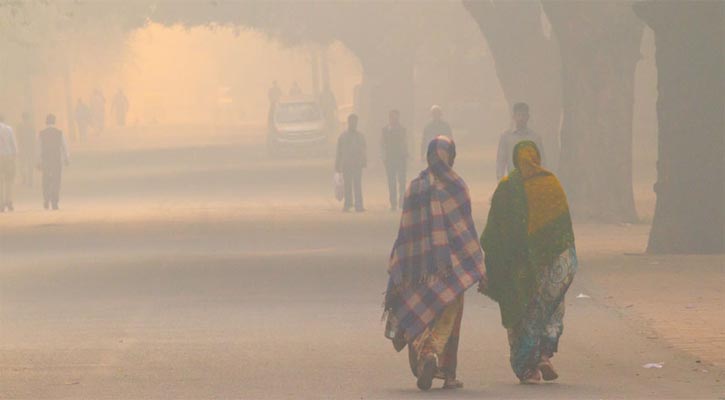Air pollution affects birth weight, study finds
4 || risingbd.com

International Desk: Air pollution may be harming babies even before they are born, adversely affecting their birth weight, Chennai-based researchers have found.
The researchers have found that birth weight comes down by 4 grams when pregnant women are exposed to per 10 microgram /m3 change in particulate matter 2.5 (tiny particles that easily enter airways in the lungs). They calculated this after studying over 1,200 pregnant women in Chennai and two surrounding districts for five years from 2010.
Researchers say the common source for air pollution in cities is vehicles. In the rural areas, a large part of pollution comes from solid fuel.
They say the results are troubling because low birth weight may increase risks of various diseases including diabetes, heart disease and hypertension - some of the top three risk factors for death and disabilities.
The Indian Council for Medical Research-funded study has been published in the electronic version of the scientific journal Environmental Research on Wednesday.
"This reduction in weight is just due to air pollution excluding all other risk factors. For the first time, we have been able to establish a link between air pollution and maternal health. We have also been able to quantify the risk. It is also a clear indication that we will have to step up our pollution control measures," said one of the lead authors, Dr Kalpana Balakrishnan of Sri Ramachandra University.
The researchers placed small pollution monitors in homes - one each in kitchens, living rooms and bedrooms -- of the all these women.
More than 50% of the women spent over 18 hours in their homes. Some women, who worked, were asked to wear small monitors on for 24 hours.
Researchers analysed the pollutants collected in the monitors' filter. After the babies were born, researchers got data about the condition of the babies and their birth weight from the primary health centres and government hospitals.
While nearly 40% of population from rural areas - Kancheepuram and Tiruvallur - were using solid fuel in 2010, the number dropped to 10% by the end of the study, she said.
"Reduction in air pollution has the potential to improve birth weight. In the districts, for instance, if we are able to give pregnant women LPG for cooking, we will be able to bring down pollution levels from up to 200microgm/m3 to 30microgm/m3 and a corresponding increase in birth weight up to 70gms," said Dr Balakrishnan.
The authors say cities like Chennai may not have such simple solutions for air pollution as they have complex sources, including vehicular pollution, burning of garbage and pollutants from construction sites.
"It is important to step up environmental pollution control efforts for overall health benefits. In Tamil Nadu, we give maternal and child health a top priority because once we do that over all benefits automatically improves," said director of public health Dr K Kolandaswamy.
According to the Union health ministry data, at least 16.4% of the children have low birth weight -- their body weight is below 2.5kg.
The researchers will replicate the study in highly polluted cities like New Delhi to further understand effects of pollution on pregnant women. They are also conducting a randomised control trial in around 800 women in Villupuram and Nagapattinam districts to see the effect of solid fuels used for cooking as part of a large scale multi-country effort.
"We will be providing about 400 women LPGs to see if there is stark difference in birth weight as per the conclusion we have arrived in this study. It will then be recommended as a national level policy to the health ministry," said Dr Balakrishnan.
Source: Times of India
risingbd/Dec 28, 2017/Mukul
risingbd.com























